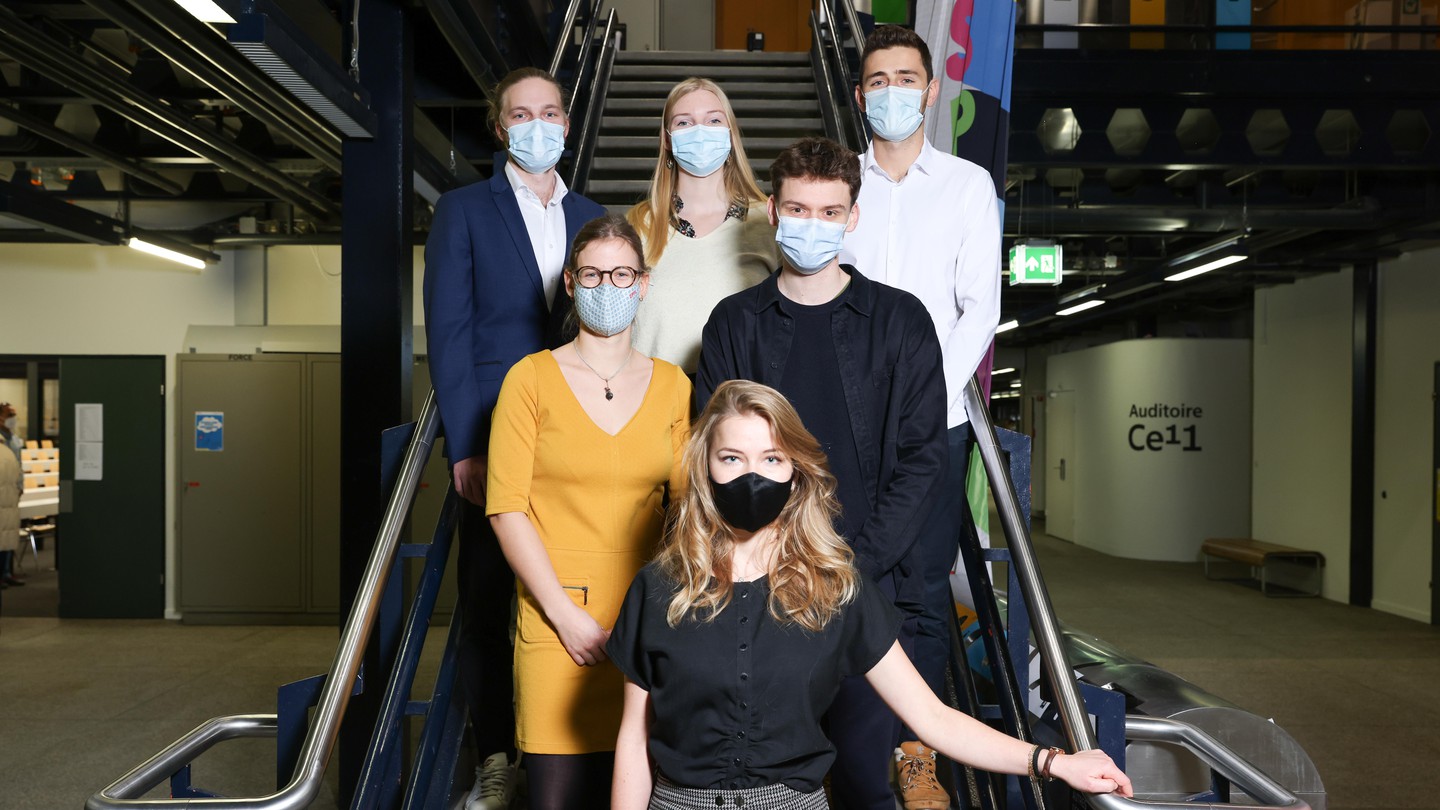The winners of the Durabilis Awards are selected by a panel of judges comprising representatives from the University of Lausanne (UNIL) and EPFL, a cantonal forest inspector and a journalist. In this 15th year of the awards, the judges reviewed 33 applications and selected three projects. All the winning students are from EPFL’s environmental sciences and engineering (SIE) section, within the School of Architecture, Civil and Environmental Engineering (ENAC).
The awards were handed out at a ceremony at EPFL on 2 December 2021. During the ceremony, Augustin Fragnière, chair of the selection panel and deputy director of UNIL’s Competence Center in Sustainability, explained that this year’s winning projects all suggest practical methods to help combat climate change. He also thanked the mayor of Ecublens, who attended the ceremony, for supporting the awards.
A strategy for offsetting carbon emissions
Julie Reznicek, a Master’s graduate from EPFL’s Laboratory of Environmental and Urban Economics, won a Durabilis Award for her thesis titled Developing a Strategy to Offset Carbon Emissions at EPFL. She conducted her research as part of EPFL’s Campus Climate Plan, examining five different carbon-offset methods that could potentially be used in Switzerland: producing biochar, an organic charcoal-like material that is made by burning biomass; restoring wetlands by reintroducing water to dried-out areas, which limits decomposition and thereby reduces methane production; improving how forests are managed and increasing the production of Swiss wood products; installing solar panels as part of a Virtual Power Purchase Agreement (VPPA) whereby any unused electricity is fed back into the grid; and finally, installing a geothermal heat pump, which transfers heat from the ground to warm buildings.
Reznicek’s initial aim was to identify the best strategy for EPFL, but in the end she shifted her focus to a much broader question. She examined whether investing in carbon-offset systems was the best way for an engineering school to achieve carbon neutrality – and she gave a very clear answer during the award ceremony:
An engineering school like EPFL would be better off exploring innovative technological solutions rather than focusing solely on carbon offset projects
The judges praised Reznicek’s analyses for being “thorough and accurate” and concluded that her research would help “improve EPFL’s climate policy.”
A tool for managing urban ecosystems
Marine Manche and Quentin Chiche, both Master’s students, received a Durabilis Award for a project they completed during the Design Project module of their Master’s program. Their aim was to develop a method for monitoring sustainability in Fribourg and evaluating the resilience of its urban ecosystem. They worked hand-in-hand with local stakeholders and identified 17 key issues along with 38 indicators. They compiled these key issues and indicators into a “sustainability wheel” – a tool that policymakers can use to visualize each indicator and track how it changes over time.
By taking a collaborative approach, we discovered things that, as engineers, we hadn’t previously considered.
According to the judges, the wheel design is “ingenious” and “makes it easier to understand the various aspects of sustainability.” They added that it could easily be adapted and used in other contexts.
Concrete ways to reduce our carbon footprint
The third winning group was made up of Alexis Barrou, Edouard Cattin and Blanche Dalimier. As part of their life-cycle analysis class, they worked on a project called Annual Carbon Footprint of an Average Swiss Resident and his/her Key Actions, with the goal of identifying concrete steps people could take to reduce their carbon footprint.
The students began by identifying four main sectors that contribute to consumers’ carbon footprint: food, transportation, housing, and goods & services. These sectors were selected because they encompass most aspects of daily life. In analyzing the emissions of each sector, they found that a Swiss resident produces an average of 11.6 tons of CO2 equivalent per year. In Switzerland, 60% of total emissions are generated by the transportation and goods & services sectors (30% each), while residential heating accounts for 12.5%. The goods & services sector includes many subsectors – in some of them (like healthcare) it would be hard for consumers to reduce their carbon emissions, but in others it would be possible by making certain lifestyle changes, such as by opting for more sustainable clothing or buying fewer digital products. All the potential actions identified by the students and their detailed calculations will soon be published on the Climpact website.
Drinking bottled water for a year produces more CO2 emissions than flying from Geneva to Barcelona.
The judges were impressed that the students had calculated the carbon footprint for an average Swiss resident so meticulously and precisely and were able to suggest around 50 ways for people to reduce their carbon footprint.
According to Fragnière, the three winning projects demonstrate how important it is to address problems in a multi-faceted, holistic way. Just before the award ceremony, Klaus Schönenberger, head of EPFL’s EssentialTech Center, gave an inspiring talk on this very topic. He stressed that taking a cross-disciplinary approach will be crucial if we are to use innovation to achieve the goals of sustainable development, social justice and peace.
